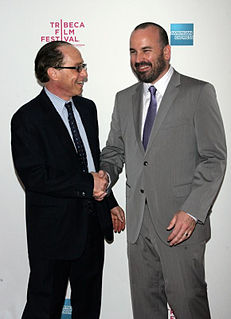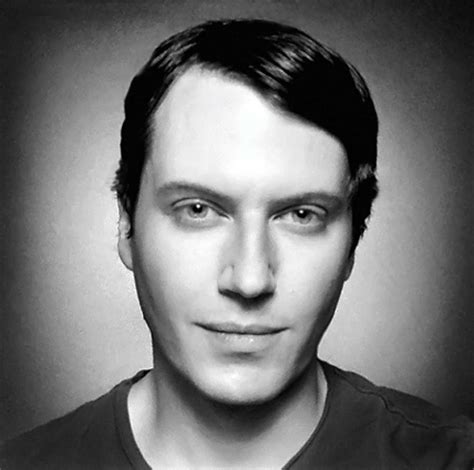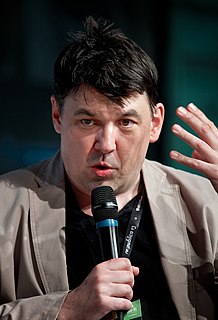A Quote by Richard P. Feynman
Perhaps one day we will have machines that can cope with approximate task descriptions, but in the meantime, we have to be very prissy about how we tell computers to do things.
Related Quotes
We do know that we can set certain algorithms for machines to do certain things - now that may be a simple task. A factory robot that moves one object from here to there. That's a very simple top-down solution. But when we start creating machines that learn for themselves, that is a whole new area that we've never been in before.
Computers are so deeply stupid. What bother me most when they talk about technology is they don't realize how much more exciting their minds are. That machine is stupid. And boring. It does just a few things and then it'll crash. People think, 'I am on the Net, I am in touch with the world'. Wrong! The point is how we work, not how machines work.
I'm very interested in the way the Internet has changed teenage life. Obviously it's very different from when I grew up, when there weren't even answering machines, much less computers. I was telling my children this the other day, and the little one said, "Did you have electricity, Mom?" and I was like okay, enough, kid.
How can it be a large career to tell other people's children about the Rule of Three, and a small career to tell one's own children about the universe? How can it be broad to be the same thing to everyone, and narrow to be everything to someone? No; a woman's function is laborious, but because it is gigantic, not because it is minute. I will pity Mrs. Jones for the hugeness of her task; I will never pity her for its smallness.
Science fiction does not attempt to predict. It extrapolates. It just says, "What if?" not what will be? Because you can never predict what will happen, particularly in politics and economics. You can to some extent predict in the technological sphere - flying, space travel, but even there we missed badly on some things, like computers. No one imagined the incredible impact of computers, even though robot brains of various kinds but the idea that one day every house would have a computer in every room and that one day we'd have computers built into our clothing, nobody ever thought of that.
What I think is great about Pippin, specifically, and I wouldn't make this generalization about all musicals, is that it is about how we tell stories and the way stories are very subjective. How we tell some things and leave other things out in the way The Princess Bride is or The Wizard of Oz is, which both have a framing device.
Run for your lives-the computers are invading. Awesomely powerful computers tackling ever more important tasks with awkward, old-fashioned interfaces. As these machines leak into every corner of our lives, they will annoy us, infuriate us, and even kill a few of us. In turn, we will be tempted to kill our computers, but we won't dare because we are already utterly, irreversibly dependent on these hopeful monsters that make modern life possible.





































